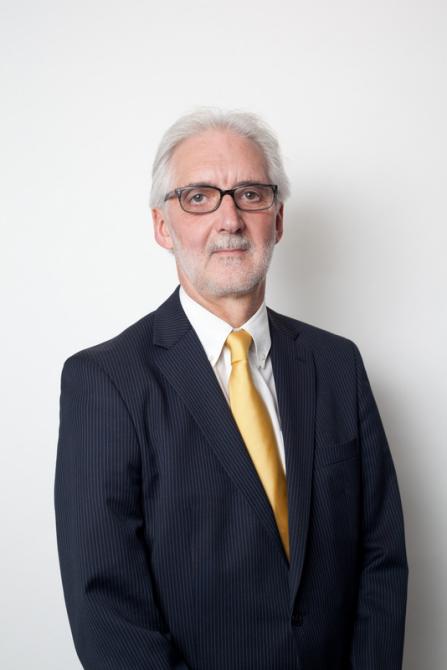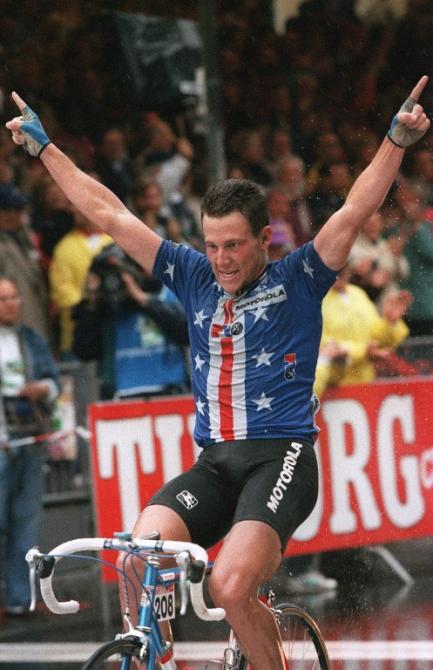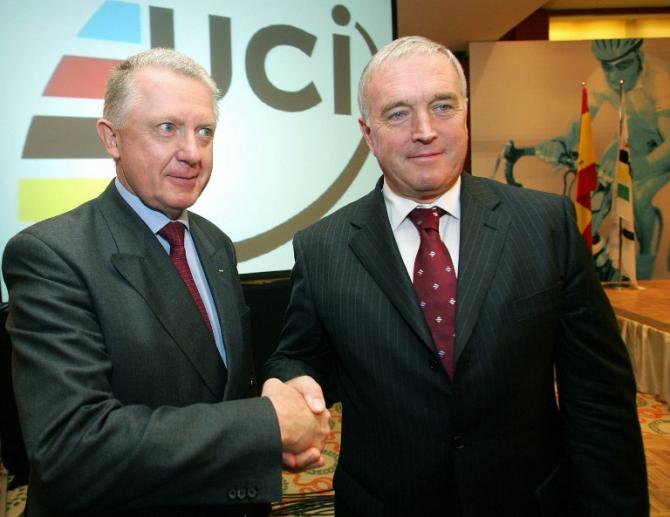Cycling Independent Reform Commission ready to go
Commission's power restricted to current licence holders



The Cycling Independent Reform Commission (CIRC) is ready to go “full speed” according to the commission’s chairman Dick Marty.
After issuing a statement asking for anyone with information to come forward, the CIRC laid down its modus operandi. They confirmed that the commission will run for a year, with the possibility of extending a further four months (upon UCI approval), with a budget of CHF3 million.
Former Australian military officer Peter Nicholson will be the commission’s full-time member and he will meet with the other two members on a regular basis. They will provide UCI president Brian Cookson with monthly updates on its progress.
Cookson stated that all funding will come from the sport’s governing body, as “nobody else will pay, so if we want to have this commission then the UCI must pay.”
Over the next year, the CIRC hope to hear various testimonies from individuals involved in cycling. The powers handed down to them from the UCI and the World Anti-Doping Agency (WADA) will allow the commission to hand out reduced bans, on an individual basis, depending on the information given.
“This means that we will be very flexible. We can give out decision according to the input,” said Marty, from a press conference in Switzerland.
“This is definitely an extraordinary tool, which has been set up because of an extraordinary period. The main goal of this is to get rid of the past.”
The latest race content, interviews, features, reviews and expert buying guides, direct to your inbox!
There are some restrictions to this power, however. If the commission wishes to give no sanction, then they must reach an agreement with the WADA and the UCI. Bans are limited to current licence holders only. So this would exclude individuals such as past UCI presidents Pat McQuaid and Hein Verbruggen.
Sanctions
Article 44 in the CIRC terms of reference lists a number of anti-doping rule violations and the length of “ineligibility” that would follow. A rider admitting to using or possessing prohibited substances would be subject to a ban of six months, however, this would increase to 12 months for team managers and owners. The longest sanction available is 36 months (3 years). This is restricted to team doctors and licensed medical practitioners.
Marty also noted that individuals who were known to have information, but committed no violations themselves, and withheld it, would be noted in the final report.
During the press conference there appeared to be some discord as to whether individuals could establish the length of their sanction prior to giving information. Marty seemed to imply that this was possible, although this may have been lost in translation, as the commission Chairman was issuing his responses in French. However, Cookson vehemently denied this.
“Until the actual evidence has been given, it is impossible for the commission to agree if the information given merits the degree of reduction that a person might wish."
Calling for Testimonies
Cookson issued a rallying cry to anyone who might have secrets about cycling’s darker past. “If you really care about our sport, if you want to make this better and to help restore the damage that has been done to our sport, then please come forward now.
“This is a window of opportunity. These reduced sanctions will not be indefinite and the risk is that someone could give information about them. If anyone has anything to hide, now is the time to come out, before someone else tells the truth about your activities.”
At this point the commission has solely been working on it’s framework and is yet to hear from anyone. Although they can only make deals with current licence holders, they hope to hear from anyone with any knowledge of past doping practices.
While they are hoping to get a good response to their call for testimony, they admitted that they may have to do some of the legwork themselves, especially in some of the more important cases.
“There will be a lot of people that we consider aware of key information. So we would like them to come forward. If they don’t we might make the move ourselves,” explained Marty. It is highly likely that such an approach could be made to Lance Armstrong, who could be a rich resource of information.
Information given may be made public by the commission, but the identity of any individuals who come forward will remain anonymous.
Truly independent?
The question of independence has often been raised. Can a commission funded by the UCI truly be autonomous? It remains to be seen if the UCI can take a step back from the investigation, but steps have been made to try and ensure this.
If even the metaphorical separation is difficult to establish, there will be a physical one. The UCI’s base is in Aigle, while the commission’s headquarters will be 30 minutes down the road in Lausanne.
Aside from the monthly updates, Cookson will have no part in the daily running of the commission. “They will be given the space to do what is necessary and we will not interfere with them,” says Cookson.
Looking to the Future
Both Marty and Cookson were keen to impress that the main purpose of the commission was not to dig up the past, but to use previous errors to improve not just cycling’s future but sport as a whole.
“It’s about learning some lessons for the future, so that we don’t make the same mistakes again,” said Cookson. “Perhaps other sports can learn from our experiences as well, because this certainly isn’t a problem that has been restricted to the sport of cycling.”
When the final report is issued in a year’s time, it will lay down guidelines and recommendations to prevent cycling returning to its doping past.
Born in Ireland to a cycling family and later moved to the Isle of Man, so there was no surprise when I got into the sport. Studied sports journalism at university before going on to do a Masters in sports broadcast. After university I spent three months interning at Eurosport, where I covered the Tour de France. In 2012 I started at Procycling Magazine, before becoming the deputy editor of Procycling Week. I then joined Cyclingnews, in December 2013.